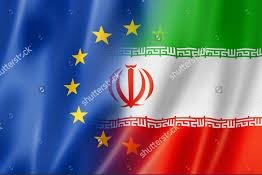How Europe sees Trump Syria strike

European leaders and politicians threw their support behind U.S. cruise missile strike on a Syrian airbase following suspected April 4 chemical incident in northern Syria. European Council President Donald Tusk said “U.S. strikes show needed resolve against barbaric chemical attacks”. He said the European Union “will work with the U.S. to end brutality in Syria.”
Also Federica Mogherini, the EU foreign policy chief, Chancellor Angela Merkel of Germany and President François Hollande of France all squarely blamed President Bashar al-Assad of Syria for the chemical incident subsequent to the U.S. strike. Germany’s Foreign Minister Sigmar Gabriel said the U.S. action was “understandable and Germany’s defense minister said the strike was in accordance with international law. Also later on Gabriel called for a probe into the incident.
Other NATO allies, including the UK, Turkey and Italy, said they viewed the development “positively”. Some European countries also discussed pressuring Russia to end Syria links.
Regardless of European governments hypocrisy for their silence when Iraqi dictator Saddam Hussein used chemical weapons they gave to him to be used during Iran-Iraq war (1980-88), western statements mostly put the blame for the horrendous incident on the Syrian government. This is while, apart from Moscow and Damascus that contest these accusations, independent experts point to lack of compelling motive for Damascus role and suggest the tragic incident could have been the work of extremists as it was not the first time that they used chemical weapons against civilian population.
Amidst all the confusion and murky details about the chemical incident and the U.S. unilateral response, one salient question that needs to be addressed is why the EU after months of troubled relations with the United States following Trump’s presidency, has supported a U.S. missile strike in Syria.
EU welcomes Trump policy shift in Syria
Donald Trump, came to office espousing an “America first” foreign policy meaning Washington stayed out of the affairs of other countries where the United States had no interest of its own. However the bombing of a Syrian airbase after erratic positions by his administration about Syria could be interpreted as a shift in Trump’s foreign policy.
Alireza Rezakhah a political scientist from Isfahan University, believes “the EU in the face of its lack of hard military assets compared to the United States and its reliance on Washington as its protector, sees the latest action by the Trump administration in Syria regardless of the fact that it has not changed the balance of power on the ground as a good sign. In fact, the move by the new U.S. administration firing multi-million dollar advanced missiles to Syria could partly assuage concerns of the EU leaders and be interpreted as a sign that despite Trump’s reluctance to guarantee the region’s security and his demand from NATO allies to pay their fair share, very little has been changed with regard to American foreign policy and its obligations towards its allies.”
Trump missile diplomacy and Russia factor
Without America, Europe has little chance of being able to challenge Russia at Europe’s doorstep in Ukraine which Moscow considers its own backyard. That’s why Trump stated ambition to reset U.S.-Russia relations has raised concerns among some EU member states. Now, after Trump’s order to launch missiles at Syria where Moscow supports Damascus government, it is a lot harder for the U.S. and Russia to negotiate a rapprochement and therefore some European leaders can breathe a sigh of relief.
Michael Walter, a professor of political science at University of Kassel, says, “It is difficult to find a clear common position and answers to Russian expansionism and destructive actions. Within the EU there are countries with fears of further attacks like Poland and the Baltic States and the wish for military shelter. Then you have governments in Hungry and Slovakia with a pro Russian opinion. Last but not least there are countries like Germany where the government condemned Russian politics officially but tried to find solutions in a mixture of negotiations to stop violence (Agreement of Minsk) and sanctions, also using the OSCE for talks.”
Professor Walter notes that “[EU] politics concerning Russia is more pragmatic than dogmatic and in the end few people are interested in a conflict … I am afraid this also is the case for the U.S. politics. There are some new troops in Poland and the Baltic States but is it more than just symbolic politics for the public in these countries? I don't think so.”
Analysts believe the Syrian crisis is a litmus test for European foreign policy. While having to bear the impact of the conflict in the form of refugees as well as terrorist attacks on its borders, EU states’ internal divisions have deprived the union of any significant influence on the direction of events in Syria. In addition, the European countries seem too consumed with their own domestic and regional issues. The Brexit and the rise in populism in places like France and Germany are making foreign policy toward countries outside states’ own borders appear like a distraction. That’s why the EU has confined itself to funding humanitarian and reconstruction assistance in the Middle East and Syria and has been reduced to an accessory to the United States. As professor Walter points out “the EU was successful in peace building missions in several conflicts. But as a political and economical organization without the will and the possibilities for military missions there are limits.”
Leave a Comment